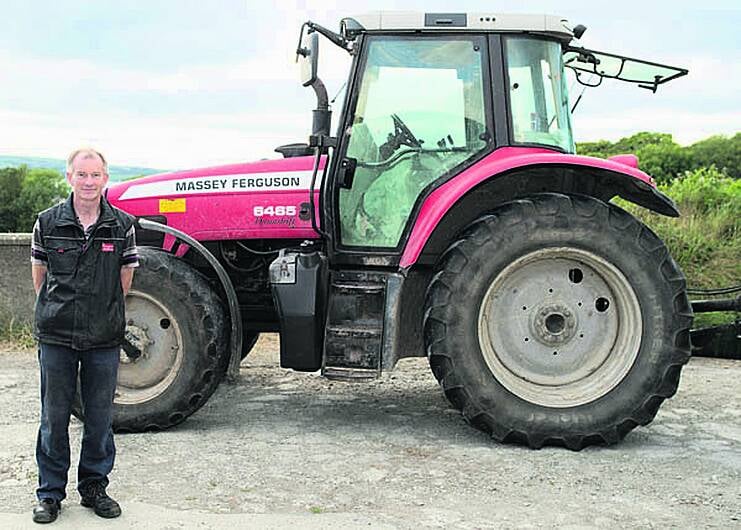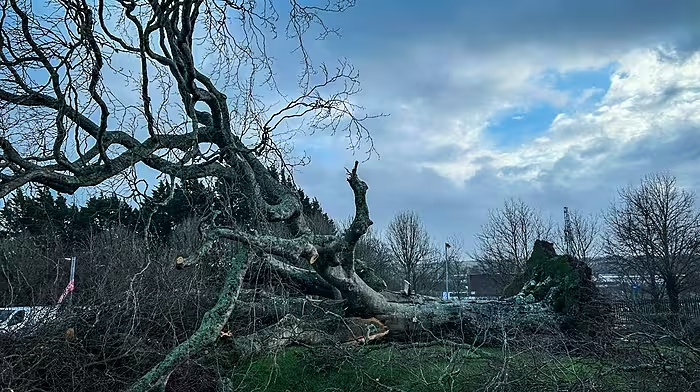Farming is regarded as being an increasingly vulnerable and risky activity because of weather changes, writes Emma Connolly.
FARMING is regarded as being an increasingly vulnerable and risky activity because of weather changes, writes Emma Connolly.
And experts agree that the current model of production will have to change dramatically to deal with the challenges that climate change will present, and sooner rather than later.
Farmers will be faced with the same weather extremes as everyone else, such as extended periods of rain and drought, as well as higher temperatures and more storms, but as they’re largely at the mercy of the elements, they’re in a more unstable position.
What’s being emphasised is the need to be prepared and to adapt.
Dr Kieran Hickey, head of UCC’s Geography department, said: ‘There will be less normal years going forward and the challenge for farmers will be how to plan which will be difficult – there are no easy solutions.’
Maynooth University geography professor and director of its Irish Climate Analysis and Research Units, (ICARUS) project, John Sweeney, recently addressed the Oireachtas Joint Committee on Communications, Climate Action and Environment, where he pointed out it was now half a degree warmer than it was 30 years ago, with another one degree hike in the next 30 years.
This will extend the growing season but cause complications for our biodiversity, he said. Speaking to The Southern Star, he said: ‘Spring will come earlier than it did before; we’ll have longer growing seasons which will have implications on the market with things like lambs finishing earlier. It will mean cattle will be put out earlier in the spring as well, which would be a beneficial advantage and warmer summers will mean better conditions for growing maize which is a nutritious form of silage.’
The dairy sector is a significant source of greenhouse gas emissions estimated to account for 3% of emissions worldwide and 10% of Irish emissions.
However, Dr Hickey feels that the agri sector can be unfairly scapegoated and says it is already quite efficient.
Production has increased by 40% and emissions have gone down by 6% in recent years.
Harold Kingston, IFA Cork Central chairman, acknowledges there are many ways agriculture contributes to climate change but like all other experts, attributes our carbon problem primarily to the use of fossil fuels.
The Courtmacsherry-based farmer said that pointing the finger at methane from cattle and cows as the biggest problem ‘isn’t telling the full story.’
‘There is research ongoing looking to reduce methane from animals through breeding, but mostly feeding. Trials with seaweed look promising, but the current quantities suggested would be hard to supply.
‘The key is to focus on producing efficiently which is a win-win scenario for everyone. We can reduce costs by better use of our resources and at the same time reduce emissions. Using less energy, not wasting water, using soil tests to target fertiliser, all help. The other win-win is increasing soil organic matter to increase the ability of the soil to store and absorb atmospheric carbon and also increase the production capacity of the soil in the first place.’
The big push by the IFA is to invest in infrastructure such as solar, biomass and anaerobic digestion on a farm scale, he said.
Carbery’s sustainability manager Enda Buckley agrees there has to be a government incentive for the production of biomethane from anerobic digestion: ‘Incentives have been promised but not delivered yet. We’re upping the ante now as the industry needs it badly for sustainability.’
*Carbery are pioneering an innovative Greener Dairy Programme - See our farming supplement with next week’s edition for more.








